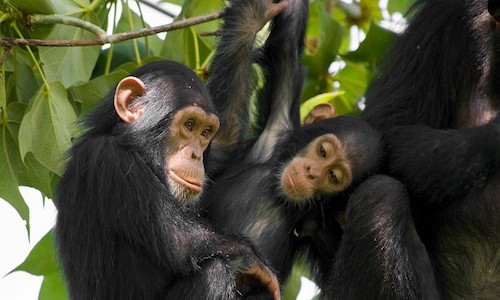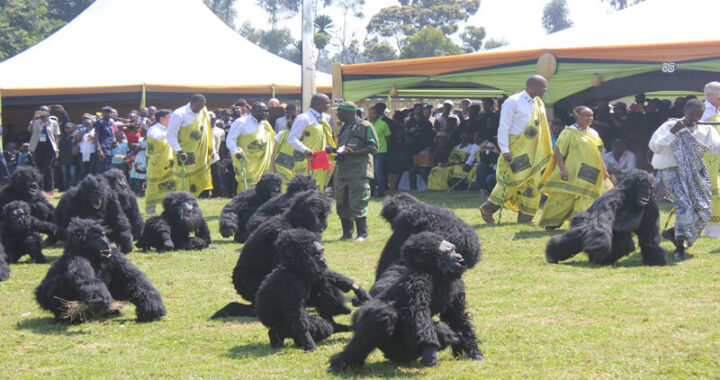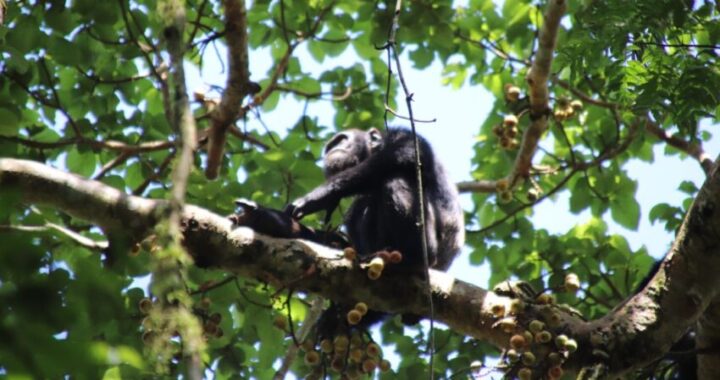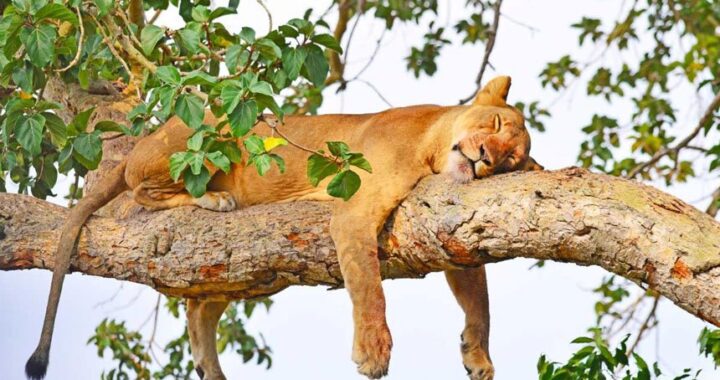Chimpanzee habituation in Uganda offers opportunity to get close and explore wild chimpanzees. Wild chimps must be habituated first before tourists can be allowed to visit them in their natural habitat. This is done through the chimpanzee habituation experience, in which conservationists engage in the study and research of the chimps’ habits and lifestyles and their interrelationships with other wildlife and the environment.
It can take 3-5 years to fully habituate a single group of primates. Chimpanzee and gorilla families that are visited by tourists today have all been habituation in order to tame their hostility and make them friendly to humans. On the other hand, the wild chimps that are still undergoing habituation tend to be shy from humans.
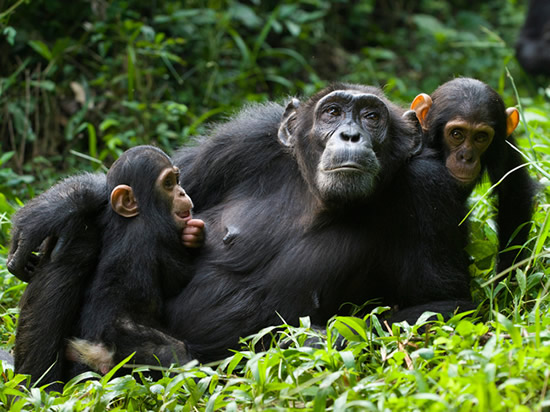
Getting up close and personal with chimps, hearing their pant-hoot screams and watching them on the ground or in the trees is almost certain either through regular tracking or habituation experience. Taking part in the chimpanzee habituation process offers travellers an opportunity to spend more time with the primates compared to a single hour permitted under normal tracking.
Where to do chimpanzee habituation in Uganda
Chimpanzee habituation in Uganda is only available at Kibale Forest National Park, popularly referred to as the “primate capital of the world.” Probably, the biggest concentration of primates in Africa is found within the Kibale Protected Area. There are 13 primate species, including 1,450 chimpanzees as well as black and white colobus monkeys, red-tailed monkeys, olive baboons and velvet monkeys.
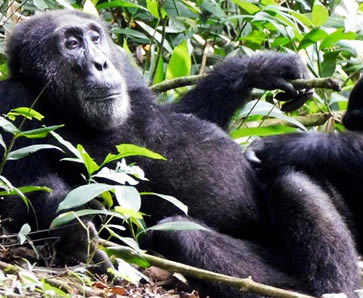
Kibale is also famous for harbouring unique primates that are endemic to the Albertine rift valley such as blue monkeys, Hamlyn’s monkeys, L’hoest monkeys, gray-cheeked mangabeys, Ugandan mangabeys and Demidoff’s bushbaby. Most of these monkeys, except for chimps, also live in the Bigodi swamp, which is 6km from Kanyanchu, the Kibale park headquarters.
Those intending to see lots of monkeys as well as gorillas and chimps should consider a primate safari in Uganda which includes visiting Kibale, Bigodi swamp, Bwindi Impenetrable National Park and Mgahinga Gorilla National Park for golden monkey experience.
What else to see in Kibale
Kibale forest is also rich in biodiversity with over 325 species of birds including the green-breasted pitta, which isn’t found anywhere else in Uganda. It is a key destination for birding safaris enthusiasts and nature lovers given the spectacular scenery of the surrounding rift valley craters. Most of these craters are filled with water and can easily be seen around Fort Portal City and the Rwenzori Mountain Range.

The protected area covers 766 sq.km at an elevation between 1,100m (3,600 ft) to 1,600 m (5,200 ft) thus contains both montane and lowland evergreen tropical forests. The forest is linked to Queen Elizabeth National Park by an 180sq.km savanna grassland corridor used by migrating mammals such as elephants, buffaloes, lions, leopards, giant forest hogs and bushbucks.
The interactions between the chimpanzees and other wild animals in the ecosystem has inspired decades of research and conservation education at Kibale forest. This focuses mostly on the chimpanzees therefore Kibale offers opportunities for research and training at the Makerere University Biological Field Station (MUBFS) within the park.
The chimpanzee habituation day
The chimpanzee habituation experience is part of the primate research activities. Only 4 visitors are allowed to take part and the chimpanzee habituation permit cost is $250 per person available for booking through UWA and a tour operator.
The cost includes park entrance fees only. Chimpanzee habituation is conducted at Kanyanchu visitor centre and starts at 6:30 am. At such a time, the chances are higher that chimps will be found in their nests. Visitors are always accompanied by habituators, rangers and trackers following the chimps for 4 hours while studying their behaviour including feeding, hunting, mating and social relationships between the group members.
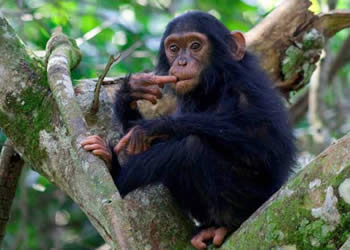
It’s permissible to collect and record the droppings, urinary and fecal samples for a careful analysis of genetics and other aspects of forest ecology. Before finding the chimps, sometimes it can take 1 to 3 hours of hiking. Relative physical fitness is required due to the nature of terrain.
If you don’t like getting up early in the morning, your accommodation should be closer to the park visitor centre. Primate Lodge is the only one found inside the park. The rest are found outside thus waking up early in the morning is inevitable when you sleep outside the park. This is especially for those intending to stay in Fort Portal City which is 20km (15-min drive) away from the park’s visitor centre. Kibale forest is found in Kabarole district about 309 km (5-hour drive) west of the capital Kampala. The park can also be reached by air from Entebbe International Airport to Kasese airstrip which is near Kibale.

